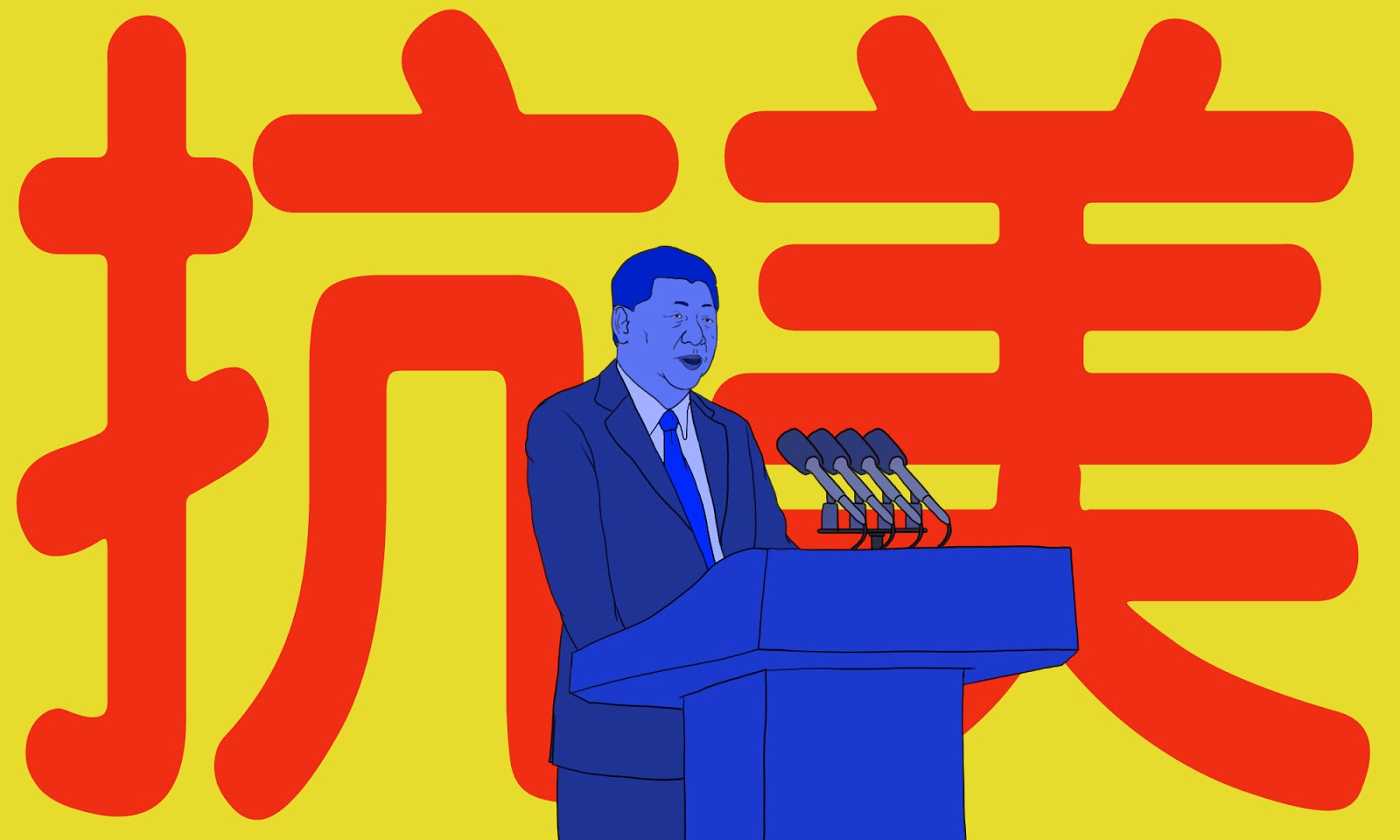Xi intensifies anti-American nationalism as China marks 70th anniversary of Korean War
Chinese leader Xi Jinping made a speech on the anniversary of the War to Resist U.S. Aggression and Aid Korea, AKA the Korean War. Xi did not go lightly on the “Resist U.S. Aggression” part of the message.

Chinese state media websites and television channels have been full of content this week about the 70th anniversary of the War to Resist U.S. Aggression and Aid Korea (抗美援朝战争 kàngměi yuáncháo zhànzhēng) — the official state media term for what is more widely known as the Korean War. As Jennifer Conrad previewed for The China Project last week, these propaganda pieces include:
- An exhibition on the war at Beijing’s Museum of the Chinese People’s Revolution, which Chinese leader Xí Jìnpíng 习近平 visited on October 19.
- A big-budget miniseries aired on state broadcaster CCTV, called Crossing the Yalu River (kuàguò yālǜ jiāng 跨过鸭绿江).
- A war movie featuring action star Wú Jīng 吴京 (of Wolf Warrior 2 fame), whose release date was moved forward to today.
A speech today by Xi marked the culmination of this week of propaganda, and Xi did not go lightly on the “Resist U.S. Aggression” part of the message. While not naming the U.S., it is obvious which country he had at top of mind during these sections of his remarks (in Chinese):
- “In today’s world, any unilateralism, protectionism, or extreme egoism will never work. Any form of blackmail, blockade, or extreme pressure will never work. Any act of pursuing one’s own course or seeking hegemony, tyranny, or bullying will never work.”
- “We will never sit idly by while China’s sovereignty, security, or development interests are undermined, nor will we allow any person or any force to infringe upon or split the sacred territory of the motherland.”
A Xinhua commentary in English emphasized these lines, and spelled out that these are meant to teach a “lesson [that] some politicians in the West must keep in mind.” One of many Xinhua Chinese-language headlines about Xi’s speech emphasized this line about the war: “The Chinese and North Korean armies defeated their well-armed opponent, shattering the myth that the American military was invincible.”
Xi’s remarks dialing up nationalism on an important anniversary of the war are especially notable when put in context of previous decadal commemorations. The New York Times writes:
Commemorations of the war have ebbed and flowed in intensity over the decades for reasons having little to do with the war itself…
Máo Zédōng 毛泽东 played down the 20th anniversary in 1970 as he sought a normalization of relations with the United States, whereas Jiāng Zémín 江泽民 in 2000 emphasized the 50th, which occurred in the wake of the American bombing of the Chinese Embassy in Serbia during the Kosovo war the year before.
John Delury, a professor of Chinese studies at Yonsei University in Seoul and author of a forthcoming book on the Korean War, said that Mr. Xi had delivered a similar speech as vice president 10 years ago, although in substance and tone it was less combative.
“There’s a different resonance now,” Mr. Delury said. “He’s hitting the stand-up-to-America theme pretty hard now. It’s getting intense.”






